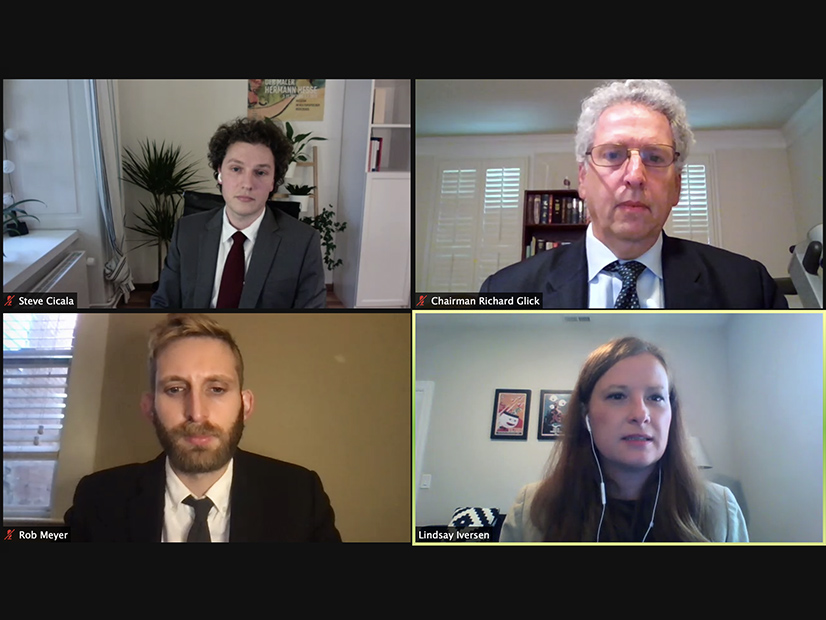FERC Chairman Richard Glick on Wednesday said that the increasing frequency of extreme weather events like the Pacific Northwest heat wave is making transmission planning an issue of national importance.
“The Biden administration is giving enormous priority to transmission,” Glick said. “Have you ever heard a secretary of energy go around the country talk about electric transmission like Secretary [Jennifer] Granholm is doing? When have you seen legislation, infrastructure legislation for instance, that has billions of dollars proposed for building out additional transmission lines?”
Glick made his remarks at a webinar Wednesday hosted by the Energy Policy Institute at the University of Chicago.
“They know that the clean energy transition that’s underway isn’t going to succeed unless we build out the grid. I think the problem is, of course, we have to get Congress to agree on an infrastructure bill, and they’re working on that right now,” Glick said.
Glick described the process of building grid infrastructure as a three-legged stool consisting of siting, planning and cost allocation.
On siting, some states don’t necessarily have the incentive to approve a transmission line that’s going to cross their state without delivering any power to its residents, he said.
“That is certainly one of the big issues, but there are other issues as well,” Glick said. “For instance, transmission planning. How do we plan for transmission? And that’s something that FERC does have jurisdiction over. And we are not necessarily planning in the best way so far. Essentially, a lot of times we look at local lines to address a local reliability issue.”
The commission isn’t necessarily considering what’s really needed or what the grid is going to look like in the future, he said.
“Probably the biggest impediment in addition to siting is cost allocation,” Glick said. “Everyone wants transmission, but no one wants to pay for it. Courts have told FERC that we are the agency essentially responsible for allocating the cost of interstate transmission; that we have to allocate those costs roughly commensurate with the benefits.”
The commission has been looking at beneficiaries in a very narrow way, defining them as only people who get power from a particular line, he said.
“But the fact is people are benefiting greatly when transmission is built, even if they’re not necessarily accessing directly the power that’s transported along those lines,” Glick said. “For instance, transmission lines certainly enable states and others to achieve their carbon-reduction goals. But transmission lines also reduce congestion on the grid, and that actually increases reliability for consumers and also allows them to access cheaper sources of power elsewhere if congestion on the grid is reduced. So one of the things we need to do is figure out if there is a better approach to how we allocate cost of transmission.”
Reporter Robinson Meyer of The Atlantic asked what role FERC should play in the energy transition or in helping states achieve their carbon-reduction goals.
“We’re not an environmental regulator,” Glick said. “Our role is not saying that you should be reducing emissions, but our role under the Federal Power Act is to get rid of barriers. One thing we do is try to figure out the market barriers out there that are preventing these newer technologies from being developed.”
Rep. Sean Casten (D-Ill.), a member of the Select Committee on the Climate Crisis and the House Science, Space and Technology Committee, had a different take on FERC’s role.
“The single most impactful agency in Washington right now to address CO2 emissions is the Federal Energy Regulatory Commission,” Casten said. “If we are going to electrify everything, and if we are going to get to zero CO2 at the pace that science says we must, then we’re going to have to build probably about at least 1,000 GW of new generation, which is about as much as we already have. We’re going to have to install several hundred billion dollars of transmission, which is huge.”
Any transition to a clean economy is a massive wealth transfer from energy producers to energy consumers, for if homeowners install solar panels, they don’t have to pay for fuel anymore, Casten said.



